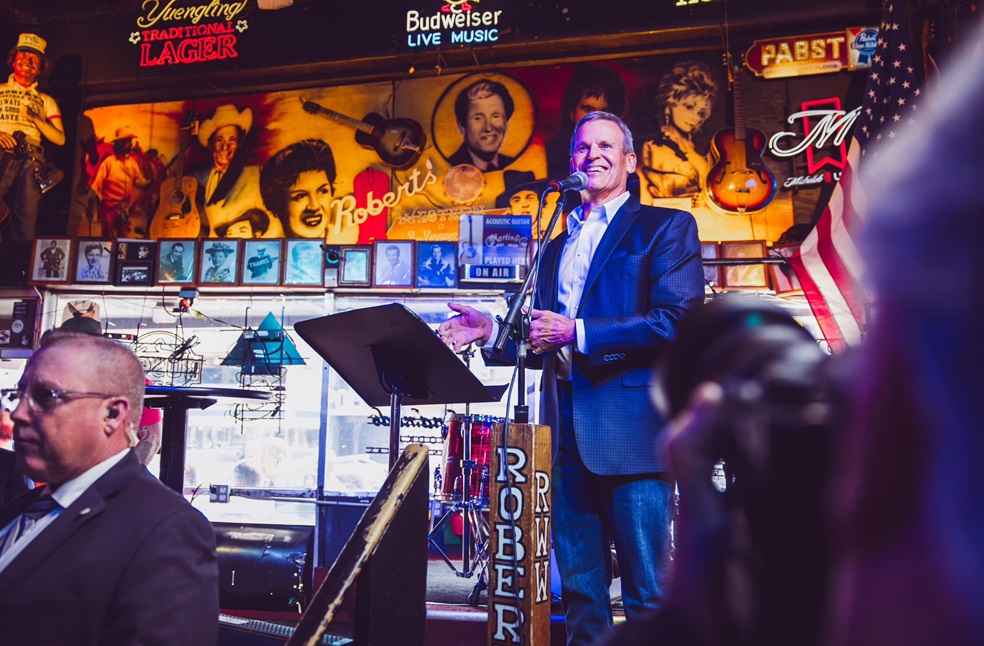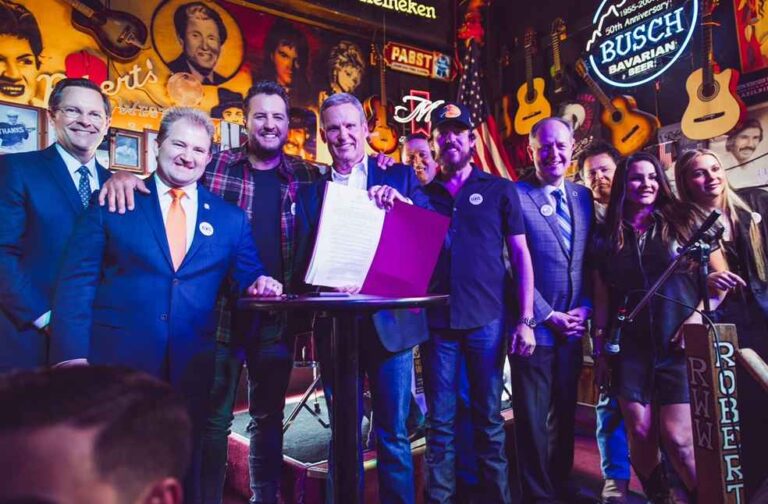Tennessee: Bill Lee, the Tennessee Governor, has signed legislation to protect songwriters, artists and other music industry experts from artificial intelligence.
In the United States, Tennessee became the first state to enact such measures. Tennessee is long been known as the birthplace of country music and the launchpad of musical legends.
After signing the bill, Lee stated that, “We employ more people in Tennessee in the music industry than in any other state. Artists have intellectual property. They have gifts. They have a uniqueness that is theirs and theirs alone, certainly not artificial intelligence.”
The state of Tennessee is one of three states in the United States where a person’s name, photographs, and likeness are considered a property right, rather than a right of publicity. Recently, a new statute called the ‘Ensuring Likeness, Voice, and Image Security Act’ or ‘ELVIS Act’ was signed into law. As per the new law, vocal likeness will also be added to the list of property rights.

The newly enacted law introduces legal action that holds individuals accountable for using technology to create an artist’s name, photographs, voice, or likeness without authorisation. This means that if someone’s voice is published or performed without their permission, they may take legal action against the perpetrator.
However, it is yet to be noticed how sufficient this ruling will be in protecting artists from having their art scraped and replicated by AI without their consent. Supporters, such as Lee, admitted that even though the music industry is in full backing of the legislation, and the Tennessee Statehouse provided unanimous consent, the law is still untested. This level of bipartisan agreement is a surprise, given the ongoing conflicts between the GOP supermajority and a few Democrats.

Several musicians from Tennessee have expressed their concern that they cannot afford to wait for a perfect solution. They have observed that the threats posed by AI are already evident on their cellphones and in their recording studios. The Republican governor signed the bill at Robert’s Western World, which is a popular honky tonk located in the heart of Nashville’s Lower Broadway and is often crowded with tourists who come to enjoy traditional country music.
The newly enacted statute was named after Elvis Presley not only to pay homage to one of the state’s most iconic residents but also to address a controversial legal battle that ensued after he died in 1977. The legal dispute centred around the unauthorized use of his name and likeness, with many arguing that once a celebrity passes away, their name and image become part of the public domain.

In 1984, the Tennessee Legislature passed the Personal Rights Protection Act. This act ensures that the rights of an individual’s personality are not terminated upon their death and can be transferred to others. As per the act, these individual rights are considered property rights and can be freely assigned and licensed, without expiring upon the death of the individual protected by it.
The decision to preserve Presley’s estate was considered crucial at the time, but over the years it has come to be recognized as a way to protect the names, photographs, and likenesses of all public figures in Tennessee. The state will now provide an additional safeguard by lending a vocal representation to these protections.



